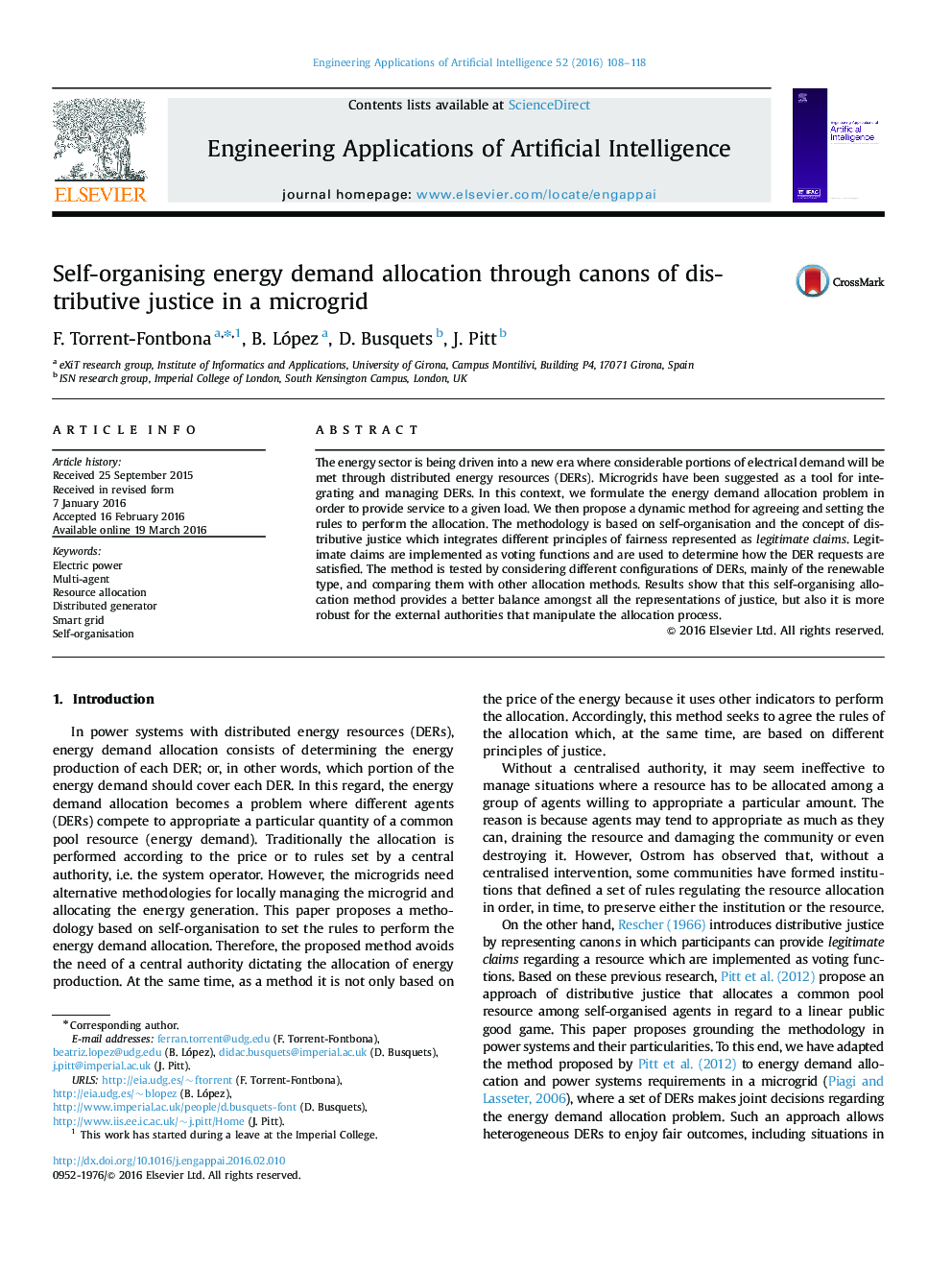| Article ID | Journal | Published Year | Pages | File Type |
|---|---|---|---|---|
| 380196 | Engineering Applications of Artificial Intelligence | 2016 | 11 Pages |
•Self-organised approach based on distributive justice to allocate energy generation.•Distributive justice allows a fair allocation considering different objectives.•Experimentation performed over different microgrids.•Results show the benefits of the proposed method regarding profit, CO2, etc.
The energy sector is being driven into a new era where considerable portions of electrical demand will be met through distributed energy resources (DERs). Microgrids have been suggested as a tool for integrating and managing DERs. In this context, we formulate the energy demand allocation problem in order to provide service to a given load. We then propose a dynamic method for agreeing and setting the rules to perform the allocation. The methodology is based on self-organisation and the concept of distributive justice which integrates different principles of fairness represented as legitimate claims. Legitimate claims are implemented as voting functions and are used to determine how the DER requests are satisfied. The method is tested by considering different configurations of DERs, mainly of the renewable type, and comparing them with other allocation methods. Results show that this self-organising allocation method provides a better balance amongst all the representations of justice, but also it is more robust for the external authorities that manipulate the allocation process.
